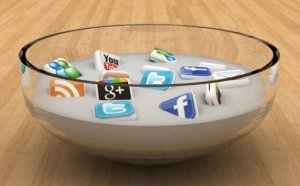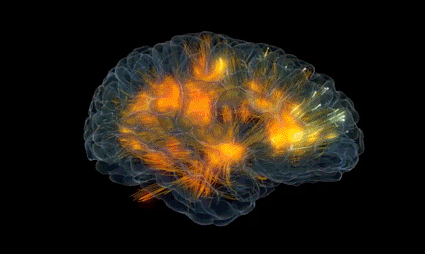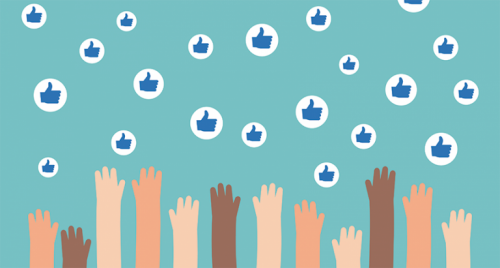The Necessity of Going on a Digital Diet

American writer Jake Reilly first spoke about a digital diet. Initially, he did it as an experiment, but it later became a famous article called “Digital Obesity and the Digital Diet“.
It all started when Reilly realized that he couldn’t be disconnected from the Internet for even a minute. He started tracking his activity and noticed that he sent more than 1,500 emails per month. He tweeted more than 250 times a month. In the same time period, he spoke on the phone for more than 900 minutes. That’s when he thought about going on a digital diet.
“Twitter is a good place to tell the world what you’re thinking before you’ve had the chance to think about it.”
-Chris Pirillo-
Jake Reilly also spoke about the concept of “digital obesity”. He even created a formula to “weigh himself” digitally and check if there was any excess. It consisted of a point system that counted the number of available devices, the number of times he went online each day, the number of messages he sent, etc. If everything went beyond a certain score, there was e-obesity.
Without reaching these extremes, everyone has an internal thermometer that indicates if there are excesses. For example, the need to be online at all times, with 20 windows open, looking here and there with the feeling of “there is something to see”, even though this isn’t the case. After going on a digital diet, you may reach certain conclusions, similar to Jake Reilly’s. These include:
Stress levels decrease with a digital diet
We don’t realize how tense we can get when we surf the web. This is because the brain is placed on maximum alert. It constantly waits for “something to happen”, like a new message or some news alert.

When someone completes a 30-day digital diet, their brain’s activity begins to level out again. In the beginning, there’s great tension, similar to the one produced by drug withdrawal. However, within days, greater tranquility and inner peace are felt.
Not many things happen as they seem
Thanks to the Internet, we believe that thousands of things are happening in the world at the same time. We begin to feel that we’ll miss something important if we disconnect for a long time.
However, most of the information that circulates through social networks and the Internet is irrelevant. In other words, it’s all more of the same. Therefore, it’s enough to connect once a day to learn about the important events of the day.
We don’t have as many friends as we think we do and networks cause addiction
Friends and followers on the Internet are, most of the time, just another illusion. They aren’t our friends just because they like what we publish. However, we think this is true when we’re immersed in social networks. We think we have many friends due to our long list of followers.

If we go on a digital diet, we’ll discover that it’s not like that. If we disappear from the social network, we disappear from their lives. Thus, they make other virtual friends. On the other hand, talking to the people we have real connections with is the best thing we can do.
Social networks are addictive. When you connect, your brain releases small amounts of dopamine. That’s the trap. That’s how all addictions begin. Then, you go back to try to experience the same sensation.
We have to look for moments to do nothing
The Internet also makes us feel that something must be happening all the time. There’s never stillness. There’s never an absence of stimuli.
That deprives us of that wonderful pleasure of having moments to do nothing. In fact, without even noticing it, we begin to fear inactivity. This is serious because people come up with their best ideas during those moments. We do our best thinking during leisure time.

It’s good to unplug whenever we can. It’s not convenient to allow the Internet to replace our lives. Yes, the Internet and social networks are amazing, but we mustn’t put real life on the back burner. Real life is what really matters.
This text is provided for informational purposes only and does not replace consultation with a professional. If in doubt, consult your specialist.








